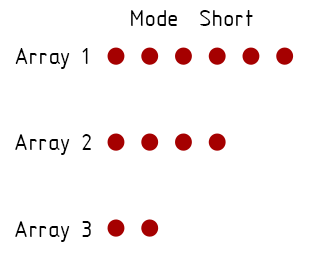Difference between revisions of "Multiprocess"
From MoiWiki
Jump to navigationJump to search (Created page with "Multiprocess in a strong feature of the nodeeditor, that makes it possible to choose between different assignment strategies of the data. In other words a single datum of a ...") |
|||
| Line 1: | Line 1: | ||
| − | Multiprocess in a strong feature of the nodeeditor, that makes it possible to choose between different assignment strategies of the data. In other words a single datum of a [[numarray]] can be assigned to all members of another [[numarray]] or an [[objectlist]. This is called '''long mode''' (1:n). In the so called short mode every element of a e.g. numarray matches to one element of another numarray (1:1). Here the shorter list defines the number of elements are processed. | + | Multiprocess in a strong feature of the nodeeditor, that makes it possible to choose between different assignment strategies of the data. In other words a single datum of a [[numarray]] can be assigned to all members of another [[numarray]] or an [[objectlist]]. This is called '''long mode''' (1:n). In the so called short mode every element of a e.g. numarray matches to one element of another numarray (1:1). Here the shorter list defines the number of elements are processed. |
| − | Here is picture taken from a post of Max Smirnov | + | Here is picture taken from a post of Max Smirnov [http://moi3d.com/forum/index.php?webtag=MOI&msg=7713.383] that shows the behavior: |
[[image:arraymodes.gif]] | [[image:arraymodes.gif]] | ||
Latest revision as of 01:18, 1 December 2016
Multiprocess in a strong feature of the nodeeditor, that makes it possible to choose between different assignment strategies of the data. In other words a single datum of a numarray can be assigned to all members of another numarray or an objectlist. This is called long mode (1:n). In the so called short mode every element of a e.g. numarray matches to one element of another numarray (1:1). Here the shorter list defines the number of elements are processed.
Here is picture taken from a post of Max Smirnov [1] that shows the behavior:
